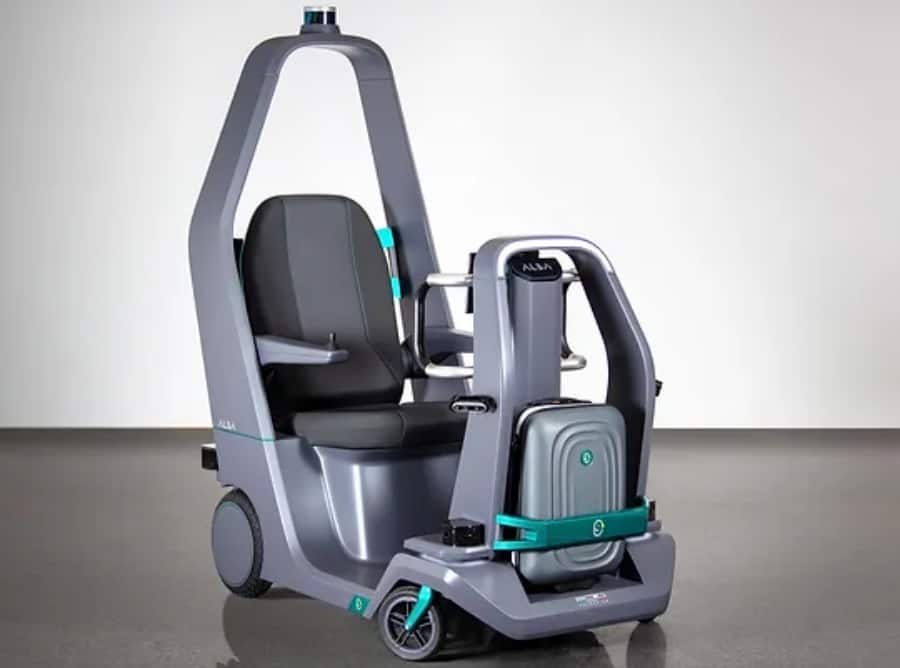Assistive wheelchairs provide autonomous transport for people with reduced mobility in public facilities
New assistive wheelchairs, by Italian manufacturer ALBA Robot, are providing facilities such as hospitals, airports, and museums autonomous mobility services for people with reduced mobility across Europe and North America.
The manufacturer created the autonomous solution as an alternative to manual pushing for indoor transportation to reduce the need for wheelchair users to rely on other people to move around in public.
Research by the University of Portsmouth from December 2018–April 2022 focused on the novel use of sensors and inventing new shared control systems and AI to positively impact the lives of both current and potential powerchair users.
Sensors were digitised and then used in novel ways with AI to assist people with driving a powerchair, which allowed some people to use a wheelchair by themselves for the first time and made driving and steering easier for many others.
Research predicted that the devices would reduce the need for carers, improve health outcomes, and give disabled people an opportunity for more independent mobility.
The new model of the ALBA Robot SEDIA device is co-branded with Italdesign, a design and engineering company and brand based in Moncalieri, Italy, and represents the excellence of the Italian design applied to a new mobility product.
Functionality, linearity, and balance characterise the model, making it aesthetically captivating and providing “the highest comfort” and a high level of usability.
Designed for smaller indoor spaces, it aims to provide alternatives with assisted or autonomous driving technologies to improve the transportation of PRM (persons with reduced mobility) enhancing their autonomy.


